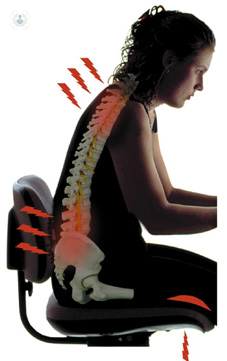How to avoid lower back pain and new ways of treating it
Written by:Lower back pain is an increasingly common pain experienced in the modern age. Here, Dr Salmin Aseri explains why and new ways of treating it.

What are the top causes of lower back pain?
In the modern world, the main cause of lower back pain is not moving. In general, if we keep moving and we do not sit down too much, we will suffer much less. Back pain is usually associated with slipped discs, degenerate discs, age-related problems such as facet joint problems and sacral joint problems, but in general back pain is associated with a lack of movement.
The spine and the spinal discs, like any other part of the body, needs a regular flow of blood which will only be maintained when you move around. Therefore, the more you sit down, the worse posture you will have and an increased chance of experiencing back pain. The best way to avoid back pain is to move around.
What are the latest advances in pain medicine?
The science of pain medicine is absolutely fascinating, with emerging data on the genetics of how we all handle and metabolize different drugs, and therefore manage pain. In the pipeline of pain medicine, one advancement that is being developed is stem cell therapy, which is still in the research stages. Also, the use of monoclonal antibodies against nerve growth factors for knee osteoarthritis which have been shown to have promising results, despite still being in the research stage at present.
Advancements in the treatment of sciatica include the use of neuromodulation spinal cord stimulators, which are already available for treatment. This new treatment option can be game-changing for patients who have not responded to medications, injections or physiotherapy in alleviating back pain, with the spinal cord stimulators working in effect as a pacemaker for the spine. Having this treatment option for such patients can be life-changing, allowing the return to normal activities and improving quality of life.
To schedule an appointment with Dr Salmin Aseri today, simply visit his Top Doctors profile.


